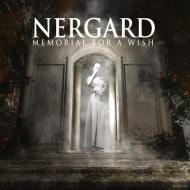 The story of this concept album from Norway’s Nergard is that of an Irishman who in 1890 was sentenced to 20 years in prison for a burglary he did not commit. He is separated from his pregnant wife, who dies giving birth to their daughter and only finds this out when he is released 20 years later. With his former friends ignoring him, his grief leads him to commit suicide.
The story of this concept album from Norway’s Nergard is that of an Irishman who in 1890 was sentenced to 20 years in prison for a burglary he did not commit. He is separated from his pregnant wife, who dies giving birth to their daughter and only finds this out when he is released 20 years later. With his former friends ignoring him, his grief leads him to commit suicide.
This work is performed principally by Andreas Nergård from the progressive metal band Rudhira, but interestingly supported by thirteen other vocalists and guitarists from, amongst others, Primal Fear, Yngwie Malmsteen, Pagan’s Mind, TNT and Fair Warning. I did wonder if the story might be at the expense of the music or might be somehow contrived but in parts, it gives it focus. Progressive music is, I guess, the ideal home for the playing out of the anguish of the main character, but it’s more than that. The musical media also comprise spoken parts, west-end style drama and, in the early stages, controlled progressive power metal which is intended to convey energy and emotion. It’s kept in check, as it has to be in the light of such a downtrodden, depressing scene. After a rather strange opening in which a Norwegian assumes an Anglo-Irish accent as the judge handing down the sentence, the drama unfolds. There are shades here of Nation Beyond’s “The Aftermath Odyssey” and other similar concept albums in the way that a human story develops.
All in all, I had a mixed reaction to this album. The highlight for me was a bass-accompanied, feeling-driven guitar solo at the end of “Is this our Last Goodbye?” The female vocals on the album are beautiful and add weight to the dilemma that the hero has as he grapples over his life. “Nightfall” has great cadence and is even uplifting. The gaelic-style violin adds appropriate melancholy. There is continuity by virtue of the story but as you would expect of a Prog album, much of this is personal and introspective. Of course there is sensitivity but I found it was mostly dealt with in a clinical way. Instead of being filled with empathy for the hero’s plight, I found myself in a state of torpor for much of the album. Although the haunting voice of the lady did wonders to stir up the sense of loss, the almost unmitigated gloom deprived the composer of the opportunity to stir up any range of emotions, let alone find anything positive. A range of instrumental techniques are used to try and generate an epic quality as the hero tries to rise above it all, but the cheesy prog-power style of “A Question of God” and the traditional rock style of “Hell on Earth” are neither exceptional, nor do they reflect the theme very well. The pleasant folk-style acoustic section in “Angels” is more effective and consistent with the theme, but for the most part the reflective Prog drifts on aimlessly and without life, which I suppose at least is appropriate to the story.
In spite of various instrumental attempts to uplift or at least transform the scene, the soul-searching goes on unabated. As a listener, the more this album went on, the less interesting I found it. It was like a case of nothing and nothing adding up to nothing. I get that in a black metal sense but here something more was needed. I found the combination of mainly prog styles uninspiring and colourless, which may arise from the dark theme of the album or perhaps from a case of indulging in emotional self-examination with nothing coming out the other side. Either way, I found “Memorial for a Wish” to be mostly bland, frustrating, musically disjointed and generally a struggle to listen to.
(4/10 Andrew Doherty)

Leave a Reply